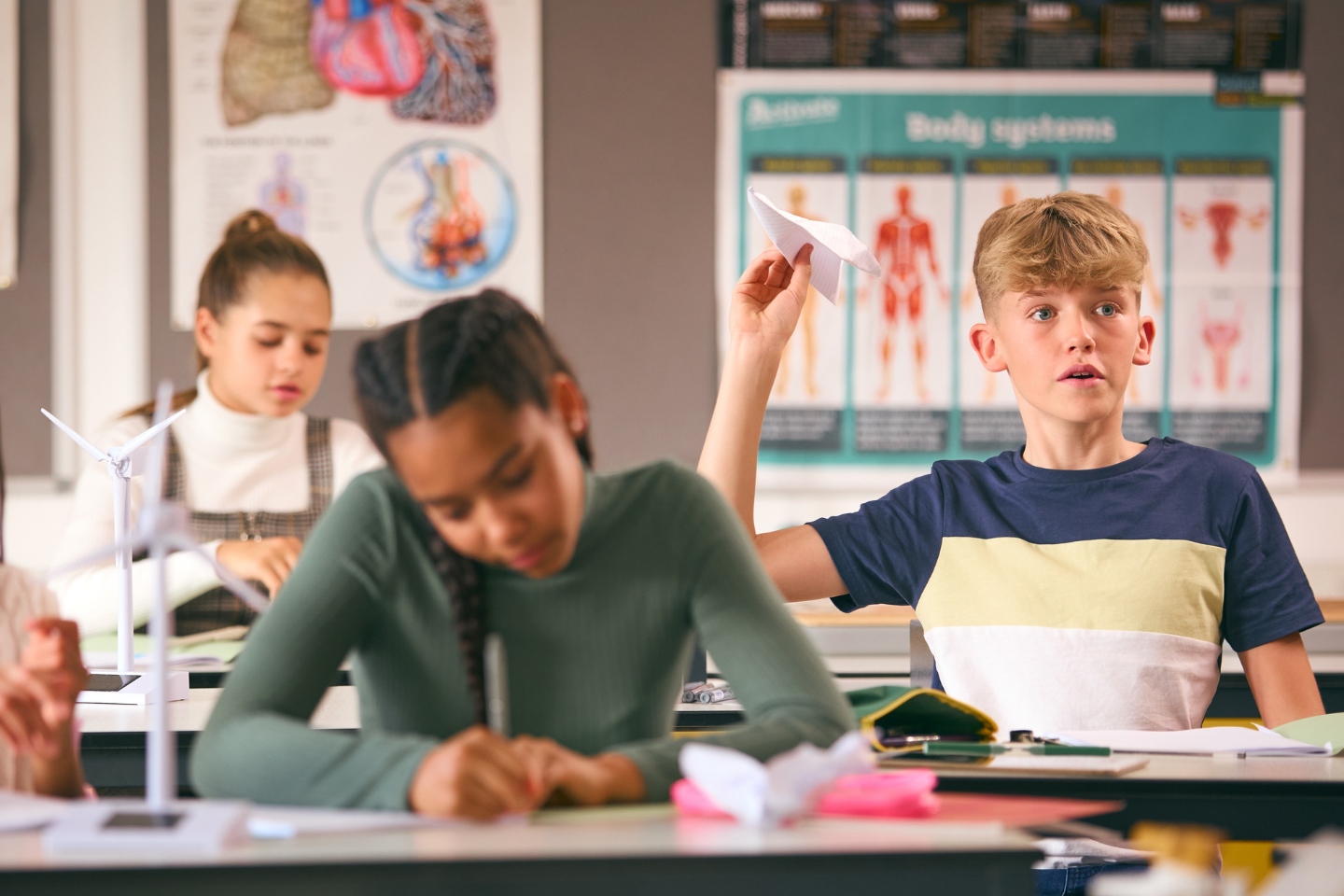
Teachers want more training in classroom management PISA report finds
ACER news 13 May 2025 6 minute readA new report by the Australian Council for Educational Research (ACER) shares vital teacher insights on dealing with disruptive classrooms.
Early career secondary teachers in Australian schools have spent a significant amount of time learning skills for classroom management and positive student interactions, but report more is needed.
Their experiences and views are included in ACER’s latest analysis of findings from the Programme for International Student Assessment (PISA) held in 2022.
‘Teacher experience and self-efficacy in the classroom’ compares questionnaire responses from early career teachers – in Australian classrooms for 5 years or less – with those from more experienced teachers.
Research Fellow Catherine Underwood says the research, released in ACER’s Snapshots series, builds on a critical area highlighted in earlier research.
‘We know from the PISA student questionnaire that disruptive classrooms and poor teacher-student relationships are a factor in lower maths performance,’ Ms Underwood says.
‘And we know from our PISA reporting over time that disruptive classrooms have been a persistent issue in Australia.
‘This new analysis helps us to see, at a national level, the extent of training teachers have reported in these areas, and the proportion who feel more is needed to help them create better learning environments.’
It also adds to ACER’s body of work that informed a Senate inquiry into The issue of increasing disruption in Australian school classrooms.
What teachers reported about their training
The average early career teacher reported that 45% of their time in Initial Teacher Education (ITE) had been spent on classroom management and interactions with students.
The average experienced teacher reported spending far less time in these areas during their ITE, comprising about 34%, or one third of their training.
Ms Underwood noted that both new and experienced teachers, on average, also reported undertaking professional learning in classroom management and interactions with students in the 12 months prior to PISA 2022.
On average, early career teachers reported spending 53% of their time committed to this professional learning during that period. On average for experienced teachers, this figure was 46%.
Despite this, nearly half of the new teachers (48%) reported a ‘moderate to high’ need to learn more about managing classrooms and student behaviour. Only 15% of experienced teachers felt the same way.
From training to practice
The research also found that early career teachers had less confidence than those with more experience in managing challenging learning environments.
Differences were found in the frequency with which early career and experienced teachers used classroom management practices to control disruptive behaviours, calm a disruptive or noisy student, or get students to follow classroom rules.
Higher percentages of experienced teachers than early career teachers used classroom management practices to achieve these goals ‘a lot or quite a lot’, with the biggest gap between the groups associated with controlling disruptive behaviour.
Higher percentages of teachers (90% of early career teachers and 95% of experienced teachers) than in other practice areas, reported being clear with students about their expectations of behaviour.
The link between calm classrooms and achievement
An ACER report released in May 2024 found that strong relationships with teachers and a favourable disciplinary climate in class were associated with higher mathematics performance in PISA.
Across Australia, students learning in the most favourable mathematics classroom environments (with a high disciplinary climate) scored between 40 and 81 points higher in mathematics than those learning in the least favourable environments.
The impact was compounded for students from disadvantaged backgrounds who reported a less favourable disciplinary climate than those from more advantaged backgrounds.
When compared internationally, Australia’s disciplinary climate in 2022 was less favourable than in the mathematics classrooms of 20 other countries, including Japan, Korea and Macoa (China), and the OECD average.
A large proportion of Australian students reported that the teacher has to wait a long time for students to quiet down (30%), that students do not start working for a long time after the lesson begins (29%) and that students cannot work well (25%).
The situation has changed little since 2015, when the PISA focus was on science. ACER’s analysis showed 43% of Australian students reported noise and disorder in their science classrooms, 34% reported that their teacher had to wait a long time for students to quiet down and 24% reported that students could not work well.
Learn more
‘Teacher experience and self-efficacy in the classroom’ also provides insights into how confident early career and experienced teachers were in their teaching practices and assessment strategies.
See all of ACER’s reports on PISA 2022